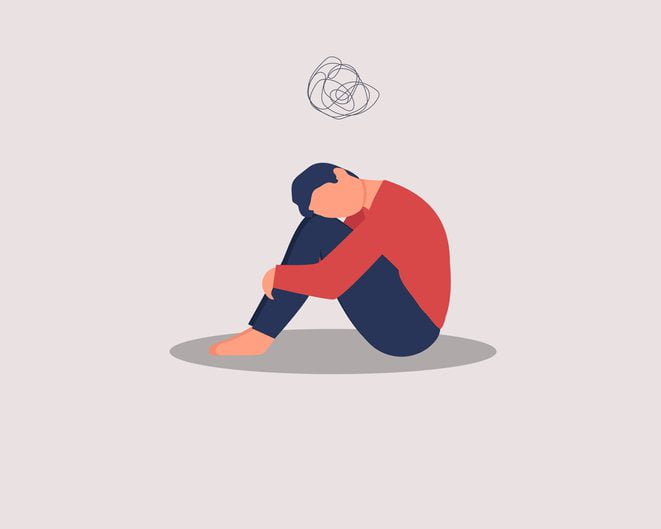
Why It’s Important to Go Through the Grieving Process
Grief and trauma are devastating, and all people experience grief to varying degrees. There is no way to avoid grief, as the loss of loved ones, extreme changes, and traumatic experiences happen to all people at some point in their lives. Learning about grief and the grieving process can help alleviate some of the pain and, instead, learn to cope.
Terms of Grief
People express grief in different ways and to varying degrees. Common terms to describe reactions to grief are known as standard human reactions in the medical community. According to researchers, the terms associated with grief have different meanings:
- Grief is an emotional response to a loss.
- Bereavement is a period of deep grief and mourning after a loss.
- Anticipatory grief is the expectant grief of a loss one knows is going to happen in the future.
- Disenfranchised grief is almost secret grief, experienced when a person experiences a loss that for some reason cannot be openly acknowledged and publicly supported.
- Takosubo cardiomyopathy, or broken heart syndrome, is the physical weakening of the left heart ventricle, caused by stress, trauma, and grief over loss. People literally can die of a broken heart.
- The heart can suffer several severe effects from grief. Takosubo cardiomyopathy is one effect, but a person could also suffer a heart attack or atrial fibrillation. Atrial fibrillation is a disturbance in the rhythmic pattern of the heart, causing irregular heartbeat or the heart to stop. The stress and trauma associated with grief can temporarily or permanently damage the heart.
The Stages of Grief
There are five main stages of grief. The stages of grief are the brain’s reaction to news of loss that leads them through their grief to acceptance of the grief. The five stages of grief include:
- Denial/Isolation: In this stage, a person is in denial that the loss or subject of grief ever happened. A person will try to explain it away or simply say it is not true. This stage can last years and prohibit the growth and processing of grief for one person, or others around them. Isolation sometimes happens so the person experiencing denial cannot be confronted with the object of grief. The person needs space to process.
- Anger: This stage of grief is where a person will get angry and demand answers. They could be angry at anyone and place blame on things that are out of their control. Those who have trouble controlling their anger may experience a delay in processing grief and cling to that anger in order to not feel grief.
- Bargaining: This stage of grief requires the subject to bargain with themselves, those around them, higher powers, or whoever they can to try and reverse the damage the subject of the grief has done. Some people do this in an attempt to counter the loss, but bargaining is a natural reaction of the brain to avoid grief.
- Depression: This stage of grief sees a person go into a depressive state or extreme sadness, possibly for extended periods. This stage can recur even after acceptance, as the loss is saddening, but it will never be as bad as the initial depression that follows the grief. This stage will lessen with time.
- Acceptance: This stage recognizes that a person has worked through their grief and can function without too much influence from the other stages of grief. This person is free of the heavy emotional burden grief causes, but will still feel some of the sadness that comes with remembering what is lost.
It’s Important to Work Through Grief
Working through grief is imperative to mental and physical health. Those who do not work through their grief may find themselves making decisions that do not reflect what is best for them. Instead, this creates reactions to denial, anger, sadness, or other effects of grief. Many will also notice physical changes like heart issues, loss of appetite, overeating to compensate for sadness, unmitigated rage, or illnesses. Mental health issues have been proven over and over to be a catalyst to certain illnesses, and stress has been proven to specifically cause heart issues.
Working through grief with a therapist or other trusted others can be healing and better for health overall. Therapy can help to move through the stages of grief more fluidly, speeding up the process to acceptance in a healthy way. Grieving is okay, and loss should trigger grief. If someone is experiencing the negative impact of grief-fueled decisions, help can be found through therapy, rehabilitation, and trauma processing with professionals. Grief can be great and take time to process, but it is important to work through grief in a healthy way.
Loss can trigger a lot of emotions that can lead to things like isolation, substance use, or decisions driven by anger. Working through grief is important to help yourself let go of the pain. Come work through your grief at RECO Intensive. Grief can be physically and emotionally taxing and can cause a ripple effect of grief and trauma in others. At RECO Intensive, we understand that grief is hard to work through and can be detrimental to the mind and body. We also understand that substance use, coupled with grief, can lead to life-long struggles with addiction and mental health issues. Our professional staff and experienced alumni can help you to locate the source of your grief, take you through the stages of grief, and get you back on track. Call RECO Intensive today at (561) 464-6533 to learn more about addiction recovery and working through trauma. Let’s get back to a brighter future.